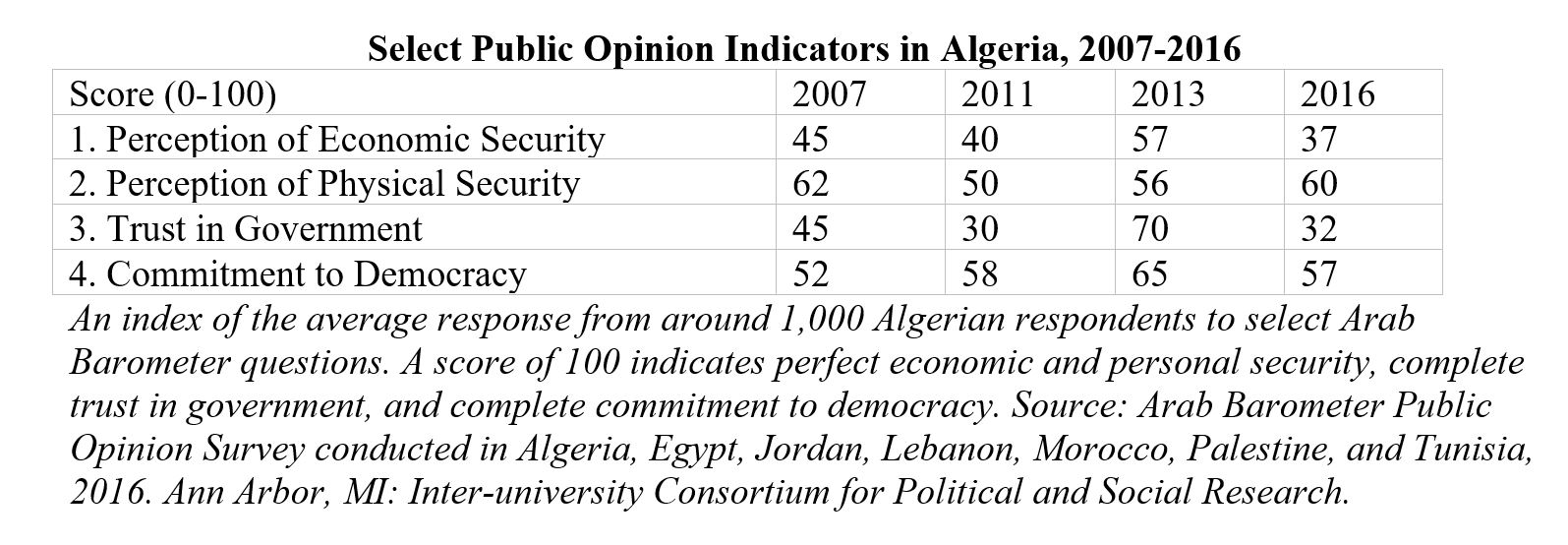In retrospect, it now seems clear that the regime’s dithering in the face of unsustainable macroeconomic imbalances was a mistake. Judging from the most recent Arab Barometer survey(conducted in 2016), Algerians were not duped by the government’s Potemkin reforms. On the contrary, the regime’s costly efforts to enforce an artificial stability appear to have backfired. Between 2013 and 2016, while the government sought to avoid rocking the boat, public perceptions of economic security collapsed.
Moreover, during the same period, public trust in the government nosedived, most likely because the urgent need for reforms had become obvious to all. By 2016, the Algerian regime ranked among the least trusted governments in the Middle East, and no doubt has sunk further in the ensuing years.
Despite the deterioration in economic security, Algerians’ reported commitment to democracy has remained relatively high, on par with that of Moroccans, Lebanese, and Jordanians. Typically, the middle class – the main driver of liberalization in the region – cools on democratization when economic insecurity is on the rise. But in Algeria, the public’s sense of personalsecurity rose between 2011 and 2016, most likely reflecting Bouteflika’s successful pacification of the country during the previous decade.

Trends in Algerian public opinion indicate that the country has reached a quasi-revolutionary moment. Deep grievances and lost trust in government have combined with popular aspirations for a better political order. And because Algerians feel physically secure, they do not fear making demands of the authorities.
Read Full Article At Project Syndicate.

